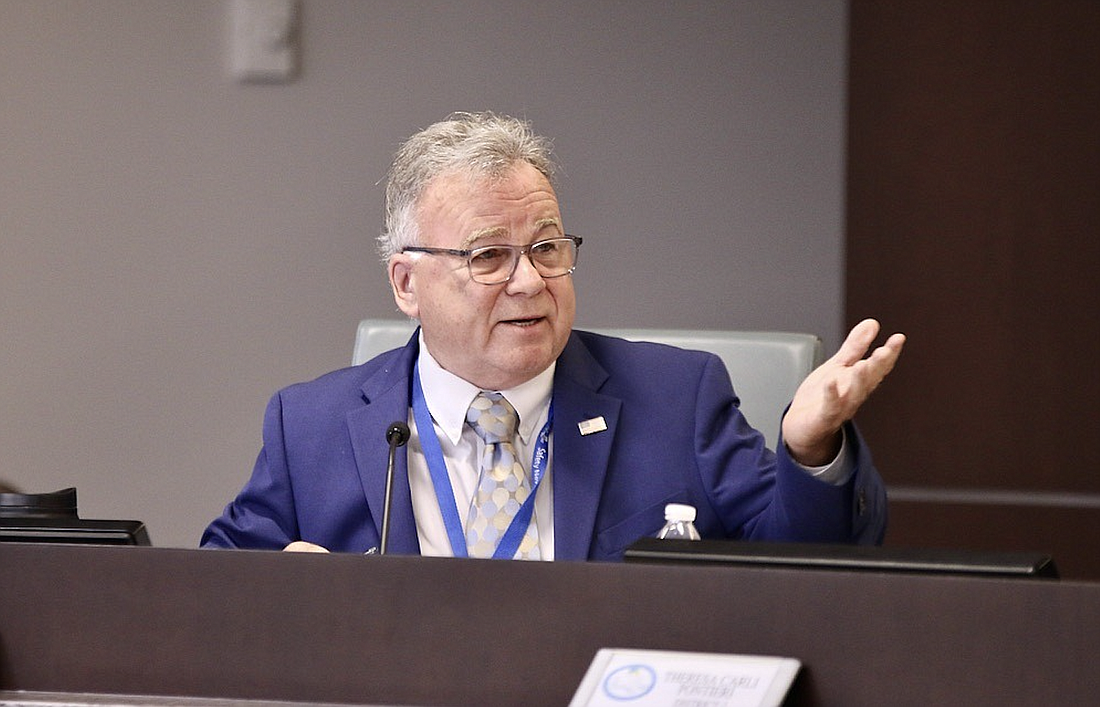- January 2, 2025
-
-
Loading

Loading

The Palm Coast City Council is considering adopting a code of conduct for council members to sign, despite a lack of repercussions if it's violated.
The code, if passed, only includes things council members either already do or should be doing, city attorney Neysa Borkert said during the Oct. 24 council workshop meeting. While everyone on the dais agreed with the content outlined in the draft code, the debate centered on whether it is the city's role to require council members to sign a code of conduct and, without a feasible way to enforce the code, if requiring one makes sense.
Vice Mayor Ed Danko called requiring a signed code of conduct a "political tool."
"It becomes a political weapon — if you don't sign it — that others will use against you," he said.
City staff at the Oct. 24 meeting presented an overview of the city's current policies for how public meetings are conducted and mentioned the option of altering the public comment procedure of workshops to include public comment after each agenda item, as the city does during business meetings.
It becomes a political weapon — if you don't sign it — that others will use against you."
— Ed Danko, Palm Coast vice mayor
Mayor David Alfin had requested during a workshop meeting last spring that city staff create a draft code of conduct. Alfin also asked the council to consider requiring background checks for elected officials once they are elected.
Alfin said implementing background checks would put council members on the same level as city employees, who must also pass a background check before they are hired.
“I'm trying to raise the bar so that we are shoulder to shoulder with all of our city staff," he said.
The code of conduct mirrors the city's code of ethics. Alfin and council members Nick Klufas and Theresa Carli Pontieri said they wouldn't mind signing a code of conduct.
"I'm more than willing to sign something that, you know, holds us to a little higher level integrity," Klufas said.
Pontieri and council member Cathy Heighter expressed concerns about how the code would be enforced.
"I absolutely have no issue at this point with signing anything," Heighter said. "I do feel ... that when I took an oath [to become a council member], I was automatically held to a higher standard. ... So that's why I don't understand why we need to sign something else."
I do feel ... that when I took an oath [to become a council member], I was automatically held to a higher standard."
— Cathy Heighter, Palm Coast council member
The draft outlines that if a council member violated the code, he or she would receive a "warning letter" first. If the violations continued, the council member could be subject to a "public reprimand, immediate censure by the City Council and/or referral to the Florida Commission of Ethics where appropriate."
A censure is a formal vote by a legislative body that publicly reprimands the individual for a specified action. It would not keep the individual from remaining a council member or from voting on the council.
"You can't remove someone from office from violating it," Borkert said. "The only way a person can be removed from office is by the governor or by a recall vote."
Because of the lack of repercussions within the council, signing the code of conduct would be voluntary by necessity, she said. But that, Danko said, leaves an official open to criticism from the public and media if the person does not want to sign it.
Danko felt much the same about the background checks, calling the two policies combined the start of a slippery slope.
“I don’t think it's government’s role," he said. "I think it's your role as a candidate, your opposition's role, the media's role and the public's role, and that's where I'd like to leave it.”
Klufas said he could see both perspectives about background checks, but Pontieri and Heighter had concerns, again, about enforcement.
I think that this is being used as a deterrent that really has no teeth, at the end of the day." — Theresa Carli Pontieri, Palm Coast council member
Pontieri said that while she agreed with the sentiment of holding the council to the same standards as staff, ultimately, if an official is elected and turns out to have a petty theft on their record, for example, the city could not do much about it.
She also said background checks could deter people from running for office.
"I think that this is being used as a deterrent that really has no teeth, at the end of the day. And that's my fear about this," she said.
The council decided it needed more time to debate both items and asked city staff to add the draft code of conduct and background check policies to the Nov. 14 workshop meeting agenda for continued discussion.